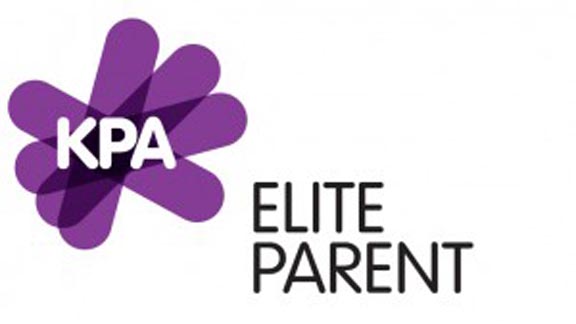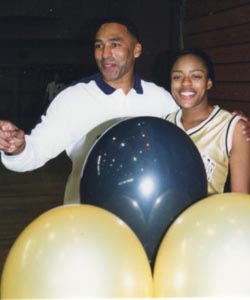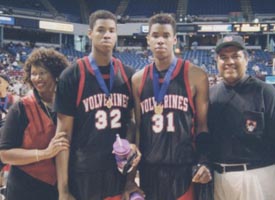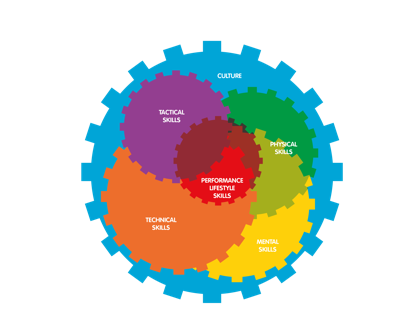
We’d like to welcome a new partner today, KPA Elite Performance Services of Danville, which wants to help athletes, parents and coaches all become elite performers in their ever-complicating roles in high school sports. We’re beginning with an article specifically for parents, which can lead to them creating the proper environment for their son or daughter to succeed.
Note: For more on the KPA Elite Parent program, CLICK HERE. For more on KPA and its elite performance services, CLICK HERE.
By Keith Power
Founder and CEO, KPA Elite Performance LLC
Having been involved with elite level youth sports for 25 years, it is clear the expectations today for our young athletes have never been higher.
Today, the goal is to identify talent early and develop it. Parents and kids alike feel the pressure to navigate this hyper-competitive, pressure-filled, make-it-or-break-it world of youth sport. As parents, we often ask ourselves, “Am I doing enough?” “Am I doing too much? “Am I doing the right things?” A recent 2014 ESPN sports poll outlines some of these concerns. KPA Elite Performance can help provide answers to those questions.
How do I become an Elite Parent?
At KPA Elite Performance, we have a passion to help every parent become an elite parent. Being an “elite” parent isn’t defined by having your kid on the All-State Team, being on the honor roll at school, or getting a scholarship to a top Division 1 college, although this is not to suggest that many parents of student-athletes who accomplish those things are not “elite.”

Former NFL great Roger Craig and his daughter, Rometra, when she played basketball at Archbishop Mitty of San Jose. Photo: Mark Tennis.
It isn’t about following the crowd and copying what other parents do just because their kid received a scholarship. Being an elite parent is about being the best you can be as a sport-centric parent by having the highest level of sport parenting knowledge, skills and tools possible at your disposal.
It’s about ensuring your teen can reach his/her maximum potential – as a person, as a student and as an athlete. If you want to maximize your child’s performance potential, KPA has a wealth of experience to ensure you can achieve that lofty goal.
Maximizing Student Athlete Performance
Over the past 25 years, KPA Elite Performance has researched, collaborated with, and worked with hundreds of elite performers in sport, business, education, the military, performing arts and show business. This led us to develop The KPA Elite Performance Model™, which is a simple, yet powerful way of understanding performance and how to execute on an elite level at an intense, consistent and sustainable manner. It can be applied to any performance environment.
The basis of our model applied to the world of sports parenting is your child’s performance as an athlete, a student and person and it is made up of six key skills or “cogs.”
1. Performance Culture – this is the day-to-day environment, which is created for your teen. It’s the bedrock of performance, because it can have such an enormous positive or negative impact on your teen’s academic performance, sports performance and behavior. Your teen’s performance culture is influenced by friends, coaches and teachers, but most of all it’s YOU the parent who have the greatest impact.
2. Physical Skills – these are the physical requirements of your teen athlete’s sport or position for a sport. This includes speed, power, strength, endurance, agility and mobility. It’s important to note that these physical skills develop at different rates. Watch any game in any sport and you’ll notice some kids look like they could be 19 or 20 and others like they are still in the ninth grade.
3. Mental Skills – this is the mental toughness and winning mind-set required by your teen to excel in sport, academics and in life. This includes skills such as resilience, focus, confidence, the ability to perform under pressure and what we at KPA call “right stuff” motivation™ – motivation driven by passion and a “love of the game” – not by punishment, rewards, control and guilt which are poor quality motivators.
4. Technical Skills – these are the general and sport specific motor skills, or techniques that need to be developed by your teen. For example, a soccer player needs to be able to pass with both feet, and be a strong tackler. A point guard in basketball needs good distribution/passing skills, good handling skills and the ability to lay up with both hands.
5. Tactical Skills – understanding the ‘X’s and O’s’ of your role, event or sport. In team sports such as basketball, baseball, football, softball, lacrosse and water polo, players need to learn offensive and defensive formations. It is very important, however, to note that because of the way a young person’s brain develops, the parts that control spatial awareness do not fully mature until around the ages of 14-16 or beyond. Younger kids just cannot process that information well enough.
6. Lifestyle Skills – this is your teen’s ability to achieve balance and to manage the challenges of academics, life and sport. It’s the “off the field” stuff. This includes their ability to manage themselves, their workload, social media and sleep. There’s plenty of research out there to suggest as parents, the more we manage our children and the longer we manage them as they mature, the more it negatively impacts their study skills, social skills and sporting success. We end up ‘killing them’ with kindness.
How well you are able to execute each of these skills has a direct relationship to the outcomes or results you and your teen achieve. Put simply, the quality of your teen’s technical, tactical, mental, physical, and lifestyle skills combined with the quality of the performance culture you establish will dictate success or failure.
This model is represented visually below:
Some important things to note about this model:
Every teen is different and has individual performance needs.
Sometimes we forget that our teen is an individual with different personalities, different beliefs, different academic and sporting strengths and weaknesses compared to other kids. Each child is different in terms of their maturation rates academically, physically, mentally, and emotionally.
Sometimes as parents we may tend to make unreasonable comparisons of our kid to other kids. Listening to other parents speaking about their teen’s academic or sporting prowess, I get a little concerned when they say they are disappointed that their teen ‘isn’t as good’ or as another in class or on the field. What about the uniqueness of each child?
The KPA Performance Model™ recognizes that every student athlete is different and needs to have a performance development plan that is specific to them. One size fits all, just doesn’t fit all.
For example, one student athlete may need to hone in on improving lifestyle skills areas like work life balance and sleep. Another student athlete may need to work more on mental skills areas such as resilience or confidence, while another may need to be focused on improving their shooting, passing, hitting, pitching or tackling.
Looking at our model, can you identify where your teen’s strengths are? Where should the real areas of focus be for their improvement?
Performance cogs do not live in a vacuum.
During my many years of working in elite youth sport as a coach, a coach, educator, a Professor of Sport Psychology, a parent coach, as well as my time as the High Performance Director at Cal Athletics (UC Berkeley), two things are clear:
First, talent is not enough for sport success. Second, hard work is not the secret of sport success. I’ve seen a lot of talented kids who work hard but did not maximize their potential. Being your best or moving beyond your best is actually about doing a lot of things very well. It’s about ensuring that every one of those six cogs are nurtured, developed and executed. That is the secret of collegiate sport success and something every parent has the ability to influence positively.

When Jaron and Jason Collins played at Harvard-Westlake of North Hollywood, their parents were always close by. Photo: Willie Eashman.
These six skills or cogs do not live in a vacuum; they impact and influence each other. They are like interconnected cogs in a highly tuned machine. Turn one cog and it affects others. If one of the cogs is defective, it negatively influences other cogs.
For example, a young soccer player may be very skillful, tactically strong and be a great physical presence, but if he/she lacks mental skills, like confidence, the ability to perform under pressure or being resilient after a setback in a game, that “weak” mental cog will essentially cancel out those physical, technical, and tactical cogs.
Similarly, a young student athlete may have great physical and technical sport talent but be poor at managing their time, academic workload, and lack self-discipline (lifestyle skills cog). Those lifestyle skills cogs are not in sync with the physical and technical cogs. That may result in a missed scholarship opportunity at a top Division 1 school.
Most important of all is the impact of the performance culture cog – which is the biggest and most important cog in the machine. As parents, we may feel that if we do all we can on the physical/mental/technical/tactical and lifestyle skills cogs we’ve nailed it. You may think that because your kid is at a reputable sports club and you are investing in additional sport and academic support services that all bases are covered? But what about the performance culture, which is the environment you are creating for your student athlete? Is this optimizing their talent and potential or is it hurting it? How do you know?
The bottom line here is that talent and hard work alone won’t produce sustained elite level performance for your child. It’s about maximizing all six performance cogs. Again, if one performance cog is weak, it affects the other cogs in the performance machine and that means less than optimal results for you and your child.
Lifestyle skills are the glue that binds things together.
With elevated expectations and scholarships on the line, our strong emotional attachments to our kids can cause us to lose sight of the big picture.
With this in mind, life skills are immeasurably critical. For example, are your kids developing the confidence to perform their best? Can they reflect on their own performance to learn and grow? Are they independent enough to manage their academic, athletic, and personal responsibilities? Do they have strong core values to help them navigate decisions? Are they able to build strong relationships with others?
Lifestyle skills can best be thought of as your teen’s ability to self-manage. The sooner they learn self-management skills such as self-control, social media management, grit, and self-regulation of their behavior, the better their chances of short and long-term success. Lifestyle skills are the glue that binds all the performance cogs together. For example, research illustrates self-discipline is more important to success than IQ, that managing sleep has a big impact on academic performance and sport skills and that mismanaging social media can have countless negative consequences for any student-athlete.
The point is that your teen may have academic skills and sport talent, but if they have poor self-discipline and self-management skills that talent will be unfulfilled.
In my experience, when I’ve seen student athletes struggle as freshmen as I did at Cal, it wasn’t because of a lack of talent or a poor work ethic. It’s because they struggled managing the demands of sport, academics and university life through poor lifestyle management skills.
When I spoke to these students and their parents to understand why the lifestyle management skills were so poor, I discovered that in their desire for their kids to succeed, these parents had “killed their kids with kindness.”
The parents had done everything for them through middle school and high school and so these students didn’t know how to manage their time, set schedules, be self-disciplined or set goals. These poor life skills then had an impact on the other cogs which resulted in academic and sports performance issues.
Performance Culture – The Critical Factor
As you will see in the model, culture is the overriding performance component that drives all the other cogs. Culture is where your child’s motivation for academic and sporting endeavor comes from and where the motivation for change, development, and improvement comes from. Without it, performance cannot flourish or be maximized.
Sports parents are the financial providers, emotional supporters, chauffeurs, snack makers, and mentors to our young athletes. More importantly, our role as parents is to ensure we create the “culture” that our young athletes live in daily. How we think, respond, and communicate with our teens teaches them how to do the same in their own world. Our behavior and expectations as parents therefore set the tone and culture. That culture can make or break our teen’s academic, sport and personal success.
What’s clear is that as parents we can’t always ‘buy’ an elite performance culture. Recent research shows that parents are investing significantly in professional services such as specialized skills coaching, strength and conditioning coaches, and academic tutoring, in the expectation that this will produce ‘success.’ But the bottom line is that research more clearly shows that youth sport enjoyment and motivation declines as parental spending and control increases. It’s the exact opposite effect to that which parents desire.
At KPA, we talk about culture in terms of the challenge balance™. This means as parents, if we create an environment which is too challenging, that can crush a student-athlete’s desire to excel. At the other end of the spectrum, if we provide too little personal support as parents and outsource our responsibilities to others such as teachers, coaches, and tutors alone, then this too will adversely affect a child’s well-being and performance. Getting that balance isn’t always easy.
In Summary
Parenting is your lifetime career. Your job description as a parent is constantly evolving. Shouldn’t you have the skills, tools, and knowledge to keep pace with your teen’s progressing needs?
Having the ability to produce an elite performing child requires the skills and mindset of an elite parent. Providing the opportunities for your children to succeed academically, socially, and athletically is not a simple task. However, possessing the capabilities to incorporate the elite performance model is essential to the realization of your goals for your teen.
Fine-tuning performance to help a child reach their maximum potential is not achieved through “five easy steps” or in one fell swoop.
It is a process that requires an in-depth understanding of all of the various components that encompass success. The KPA Elite Parent Program is an invaluable resource for sport parents who are fully committed to doing whatever is necessary to ensure their child does not leave any potential on the table. Gaining access to an advanced method for pursing elite performance is only the initial step. What follows is a progression of knowledge that will build and strengthen your child’s future.
Note: For more on the KPA Elite Parent program, CLICK HERE. For more on KPA and its elite performance services, CLICK HERE.
 Keith Power is the CEO and Founder of KPA Elite Performance, which provides elite performance solutions for individuals, teams and organizations. Keith has competed, coached, led and consulted at the very highest level in sport and business, as well as working for 25 years in elite youth sport as a sports coach, coach educator, parent coach and was previously High Performance Director at Cal. He is also a Professor of Sport Psychology at JFK University.
Keith Power is the CEO and Founder of KPA Elite Performance, which provides elite performance solutions for individuals, teams and organizations. Keith has competed, coached, led and consulted at the very highest level in sport and business, as well as working for 25 years in elite youth sport as a sports coach, coach educator, parent coach and was previously High Performance Director at Cal. He is also a Professor of Sport Psychology at JFK University.
A former international track and field athlete and Great Britain bobsledder, he was Head Coach for the British Bobsled Team at two Olympic Games and still holds the distinction of being the youngest person ever to be head coach at any Olympic Games. He is married to Hazel, has two girls aged 11 and 18 who enjoy playing sport and he lives in Danville.




